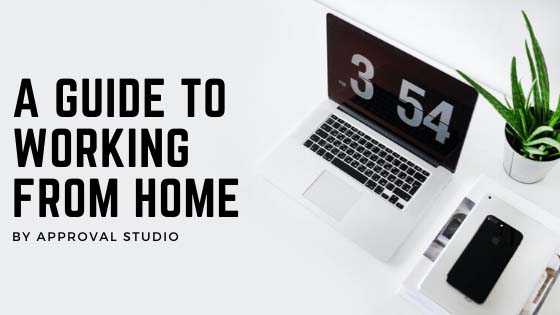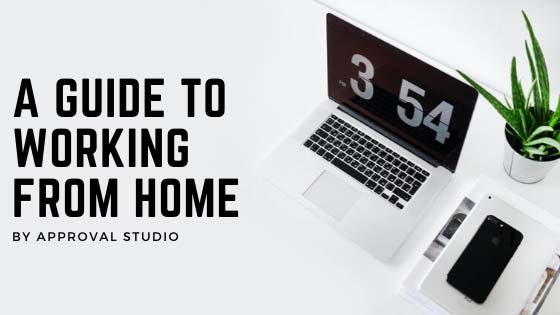Before the worldwide quarantine started due to the COVID-19 pandemic, many people I know were eager to try their hand at remote working. Why not? Remote teams seem convenient. But are they?
You can be more flexible, there’s no need to commute, and in case the weather is bad, you can always get under the blanket with your laptop and a huge mug of hot steamy tea or coffee. Sounds almost perfect, doesn’t it?
Working from home is a very curious thing: people usually see the good side of it, imagining how awesome it is. As someone, who’s been working remotely for several years already, I can definitely tell you that advantages are huge, but there are also factors that make the whole thing somewhat tricky and slippery. It’s very easy to get lost for a while and degrade your productivity to the lowest level possible. In a lot of ways, employees are right to be hesitant about giving their team members a remote “green card” – it doesn’t always work out.
However, being in a situation of a total lockdown, most of us folks don’t have much choice but to become remote employees, or the consequences will be somewhat unpleasant. How, though? There are many different ways we tried at Approval Studio: working on an app that helps with remote collaboration, you need to understand the problem to be able to fix it. I suggest we first analyze remote work in general, making bullet lists with positive and negative sides of working from home and then go straight to the tips and tricks you can use during COVID-19 crisis.
The Good and The Bad of Remote Work

I’ve already mentioned the main reason why people would like to spend their 9-to-5 online and one of the biggest benefits of remote work – flexible schedule. Well, couldn’t be truer than that (jeez, “truer” is such a weird word…). Can’t deny, it’s extremely convenient, and you can juggle with your daily schedule the way you like as if you were working part-time, provided your boss is okay with it and you don’t have any urgent assignments, fixed meetings, and etc. The main thing among all its best practices is to finish your tasks for the day – just like at the office space, but you are not bound to your office desk and not limited in time. What else can remote job offer? Here’s the “good” list of remote work:
- Flexibility and mostly free-to-change schedule
- Control over the whole working process
- Better work-life balance, ability to see friends and family more often
- Allows working literally everywhere provided there’s a laptop and internet connection
- Perfect for introvertive people
- Close to no commuting
- Allows avoiding office politics and reduces stress
- In more than 80% of cases, general company productivity and job satisfaction are increased (FlexJobs)
Looks like a charm, doesn’t it?
However, each coin has two sides to it. In the case with remote companies, I’d say the main problem would be self-discipline, as not everyone can manage to control their own working process, there’s no strong working atmosphere, and so on… Long story short, here’s the “bad” list. Mind you, it has fewer bullets, but it doesn’t make them less serious:
- Problems with internal communication
- Self-discipline and laziness
- Lack of working atmosphere (and office jokes!)
- Inability to focus
- Isolation
Coping With Remote Work: A Guide By Approval Studio Team
Now that we see both sides, we can move to the tips themselves. I asked some of my Approval Studio teammates who had had distance work experience, and they’ve given their pieces of advice that should help you cope with difficulties above. We will address the points separately, one person per each. Let’s jump into it!
Problems With Communication

It might be quite unusual to communicate within your team without seeing your colleagues face to face. If you are used to working at the office, you can just go and ask someone a question, discuss it face to face. What do you do when you can’t? There’s isn’t a better person to ask about communication strategies than our project manager and one of senior executives, Andrew. Here’s what he has to say:
“I believe that talking to people is essential in any project – you have to discuss problems if you want to find a solution. Every company, big or small, must have certain communication patterns already prepared. You must have one channel where most communication takes place and several additional ones. Collaboration tools are our saviors – we don’t know what else can happen in the coming weeks with such extraordinary circumstances, but we are sure that our communication will be intact.
For example, we mostly use Slack for messaging and Zoom for video meetings, our tasks, and all project management processes are set in Trello. If there’s something urgent and the person is not responding to the message, there’s a good old phone call. Since we sometimes have to work with designs and documents as well, we quite often use our own remote design collaboration tool, Approval Studio. It has integrations with Slack, so there’s no problem with channeling everything into a single space. What we try to do is to avoid a so-called ‘seagull management’ – it’s when your manager gets at your for five minutes, washes up your brain, and moves on to the next victim. We have a friendly atmosphere in our team, no seagulls in here”.
Self-discipline

I know it’s somewhat immodest to include yourself into the list of tip-givers, but since laziness is my main problem, I believe it’s somewhat justified. Now, seriously – I can be extremely lazy, to the point where I put off some tasks until the very last minute of the deadline. That is actually why I find deadlines very effective. Discipline is your main personal remote workforce.
At some point, I’ve been working as a freelance editor and I still take up some translation projects from time to time, so I’m very much used to them. Deadline gives you a sense of limit – and usually a penalty if you’re not on time. That’s why my number one tip – always have deadlines for the long-term tasks. If your boss or a client doesn’t give you one, think of it for yourself, draw the line, and define your no-go area. To make it feel more realistic, make a deal with a colleague to create penalties for each other if you miss the deadlines. It can be literally anything, even something like some stupid funny challenges or whatever. It’ll make you compete with each other, and your quarantine will be more fun!
Also, a good strategy is to work at a fixed time that is best for you – it will help you split your working and non-working day. In my university years, I thought I was more productive at night – so wrong! Shortly after my graduation, I figured out that it was the case just because I didn’t have many options and had to get by somehow. Right now, I feel like morning and afternoon suit me best. If you are not sure what’s the best time for you – experiment and try to figure it out, might also make a daily timetable. It helps with discipline a lot.
Focus

With self-discipline, much depends on your ability to focus even sitting at home coated in your warmest blanket with pink bunny slippers on your feet. Focus is essential for absolutely anything, and you won’t be effective without it. Our marketing Jedi, Taras, says that his ability to concentrate depends on how successfully he eliminates all distractions that surround him:
“You know, there are numerous distractions when you work from home. Gosh, it’s so hard to concentrate when you have just bought a new game for your PlayStation, the kids are all horsing around, you have YouTube or Netflix open, and so on. You have to make a sort of pact with yourself – alright, dude, during your working hours, you gotta forget that the surrounding world exists, turn it off. Except for kids, of course. And a dog. Never forget about dogs. But don’t play with them when you have to work – it will end badly, I promise. This is one of the most important time management practices”.
Me: Don’t play with dogs or kids?
“Both! (laughs, somewhat too loudly)
I do believe that the most important thing is to start – convince yourself that it won’t take much time and you’ll soon be free. Once you’ve started, it will be much harder to stop – it’s like with a good book or TV-series. I recommend taking regular breaks though. I mean, we’re not robots, rights? Getting a stretch and doing some physical exercises will make you feel refreshed, that’s why we at the office used to go to the gym three times a week before the quarantine. Exercise at home however you can, it’ll prove useful. Watch that video after your exercise’s finished, and get back to work at once”.
Atmosphere

Oh yes, that is definitely something most office employees miss enormously. Constant interaction with colleagues, on professional topics or not, is a very important part of the workflow and teamwork. Naturally, when you work far from everybody, you don’t immerse yourself into this company spirit and chemistry, which might make you feel odd. Our technical support team lead and the main atmosphere creator John says:
“Well, yeah, it is a bit harder to feel you’re working in the team when everybody’s on quarantine. However, you don’t instantly become total strangers, right? You still can talk, discuss different things not related to work, share memes or whatever – we have a special channel for it. Also, no one makes you be totally serious all the time, so we usually crack some jokes and mess around a bit during our internal video calls – I’m pretty sure any other top remote company should do the same. You must have some skill variety for that as well – these are not simple things (laughs).
Our entire team is very organized. Folks who work remotely full-time get to the physical office every two months for a week or two – it allows us to monitor their work quality, and they feel more like a part of the team. I guess the next time will be shortly after quarantine ends. Also, we have a New Year party once a year when the whole team gathers together to have a good time. If we don’t have such a possibility this year – who knows, really – all we need to have fun is high-speed internet connections”.
Isolation

Don’t get me wrong now, some people like being alone, but for others, it is complete torture. In our case with the Coronavirus pandemic and office jobs becoming home jobs, it’s rather the second variant, because everybody needs at least a little bit of society, even if this bit is very tiny. How does it influence our professional lives and how do you deal with it? Our designer and content-maker, Mary, has some practical advice for you:
“I don’t have much problem with being alone for a long time because I’m more of an introvert, really. Being a designer, you usually take up a lot of freelance orders, and that allows you to work from home permanently. However, when you stay alone for such a long time, and even a trip to the supermarket becomes some sort of adventure, it might just as well drive you nuts. What Taras said before about distractions is a great thing because the more you ignore them at your work time, the more valuable they are when you’re finished. Ironically, they distract you not only from work but also from not working! (laughs)
Except for talking to colleagues constantly, I try not to lose touch with my friends and family. If it wasn’t for quarantine, we would surely go out together, but right now virtual meetings and online board games are the thing. I won’t preach you about self-education and stuff cuz being alone sometimes draws you emotionally so much that you don’t want to do anything but turn on Netflix or go to bed. However, I realized that a stable schedule and more frequent contact with others make your day go much faster. Also, going for a short walk every day – in compliance with your country’s quarantine rules, of course – helps to wash the tiredness out of your brain”.
Final Thoughts
There isn’t one sure way to cope with remote workers’ problems, especially when everybody’s social distancing and stuff. No matter what the field of your work is – the design industry, IT, education, or etc, you should try and find the method you think suits you best. We at Approval Studio are ready to help you as much as we can – we currently have a special offer of our online proofing tool for NGO’s and medical companies that help fight COVID-19. Also, if you’re willing to improve online collaboration of your creative team, do not hesitate to contact us! Working from home might not be easy, but we sincerely believe that everybody can cope with it. Anyhow, although we don’t know the exact course after the situation we are in expires, the long-term future of work at so-called home offices looks real.
Stay healthy, follow your company’s remote work policies, and don’t forget to wash your hands!

 TEAM SOLUTIONS
TEAM SOLUTIONS WORKFLOW SOLUTIONS
WORKFLOW SOLUTIONS



 REVIEW TOOL
REVIEW TOOL PROJECT MANAGEMENT
PROJECT MANAGEMENT TOOLS & INTEGRATIONS
TOOLS & INTEGRATIONS
 CLIENT INTERVIEWS
CLIENT INTERVIEWS









